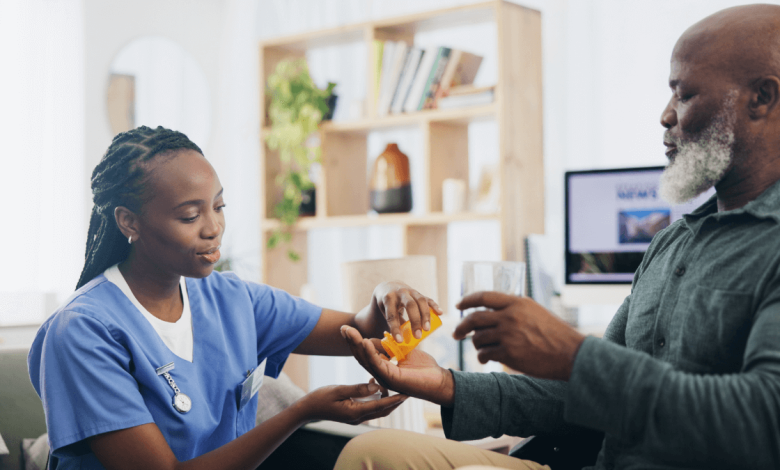How to Access Free Health Services in South Africa

In South Africa, healthcare is a right, not a privilege. The Constitution ensures that everyone can access healthcare services, including reproductive healthcare. This article explains how you can access free health services in South Africa, highlighting key resources, eligibility criteria, and the process of obtaining care.
Your Constitutional Right to Health Care
Under Section 27(1)(a) of the South African Constitution, everyone has the right to healthcare services. This includes services for reproductive health, mental health, and general care. The right extends to all people living in South Africa, regardless of their nationality or immigration status.
Which Healthcare Services Are Free?
South Africa offers several free healthcare services, particularly at the primary healthcare level. You can access these services at public clinics, community health centers (CHCs), and mobile clinics. Here’s a breakdown of the services available:
- Primary Healthcare Services: These services include consultations, vaccinations, and treatment for common illnesses or injuries.
- Sexual and Reproductive Health: You can access contraceptives, HIV and TB testing, and treatment for sexually transmitted infections (STIs) for free.
- HIV and TB Testing and Treatment: Testing and treatment for both HIV and TB are free. People living with HIV can access antiretroviral treatment (ART) without charge.
- Pregnancy and Childcare: Pregnant and breastfeeding women, as well as children under six years old, receive free care. This includes regular checkups, antenatal visits, and immunizations for children.
How to Access Free Hospital Services
Hospital services are not automatically free for everyone. To access hospital care, you generally need a referral from a clinic or CHC. However, in case of an emergency, you can go directly to the hospital. Here’s what you need to know:
- Referral System: For hospital services, visit a clinic or CHC first. If necessary, they will refer you to a hospital for specialized care. Emergency care is available without a referral.
- Costs Based on Income: The cost of hospital services is determined through a means test. South African citizens, asylum seekers, refugees, and residents are billed according to their income. Those with lower incomes will pay less or nothing at all.
- Non-SADC Nationals: If you are an undocumented migrant from outside the Southern African Development Community (SADC) region, you may face higher fees. Nevertheless, you will still receive essential healthcare, particularly in emergencies.
Free Healthcare for Vulnerable Groups
Certain groups in South Africa receive priority access to free healthcare services:
- Pregnant and Breastfeeding Women: Pregnant and breastfeeding women are entitled to free healthcare services at all public health facilities. These services include antenatal care, screenings, and postnatal care.
- Children Under Six Years Old: Children under six can access free healthcare services, such as vaccinations, checkups, and treatment for common childhood illnesses.
- Termination of Pregnancy Services: South Africa provides free termination of pregnancy services at public health facilities, and women can access these services regardless of income.
Accessing Services Without Citizenship or Documentation
Healthcare in South Africa is available to everyone, even without proof of citizenship or immigration status. If you are undocumented, you can still access primary healthcare services. While identification helps, it is not a barrier to receiving care at public clinics, CHCs, or hospitals. Emergency care will never be denied, even if you lack documentation.
National Health Insurance (NHI) and Future Access
The National Health Insurance (NHI) is a significant step toward universal health coverage in South Africa. The government aims to ensure that everyone, regardless of their financial situation, can access healthcare without paying out of pocket. The NHI will be funded through taxes and contributions based on income. Here’s what you should know:
- Universal Healthcare Coverage: The NHI aims to provide affordable healthcare to all South African residents. It will eliminate financial barriers and provide more comprehensive services.
- How the NHI Will Work: Residents will contribute to the NHI fund based on their income. The government will use these contributions to pay for healthcare services.
Who Can Access Healthcare Under NHI?
- South African Citizens: Citizens will benefit from NHI when it is fully implemented. The system will cover essential healthcare services for everyone.
- Refugees and Asylum Seekers: Refugees and asylum seekers can access public healthcare services, including ART for HIV treatment.
- Undocumented Migrants: Undocumented migrants may face challenges under the NHI, but emergency care will still be available to them.
Steps to Access Free Healthcare Services in South Africa
- Visit a Clinic or CHC: Go to your nearest public clinic or CHC for primary healthcare services. No payment is needed, and no proof of citizenship is required.
- Referral for Hospital Care: If you need hospital services, first visit a clinic or CHC for a referral. In an emergency, you can go directly to the hospital.
- Pregnancy and Childcare Services: If you are pregnant, breastfeeding, or have children under six, you are entitled to free care at any public health facility.
- Bring Any Documentation: While documentation is not required for primary care, bringing your ID or any form of documentation can be helpful.
- Stay Updated on NHI: As the NHI rolls out, stay informed about changes to healthcare access and funding.
Check also: Medical Aid vs. Health Insurance in Gauteng: What’s Better in 2025?
South Africa offers free healthcare to all residents and visitors, with certain groups, such as pregnant women and children under six, receiving priority access. The country is also moving towards universal healthcare through the National Health Insurance system. Regardless of your income or documentation status, you have the right to access essential healthcare services.



